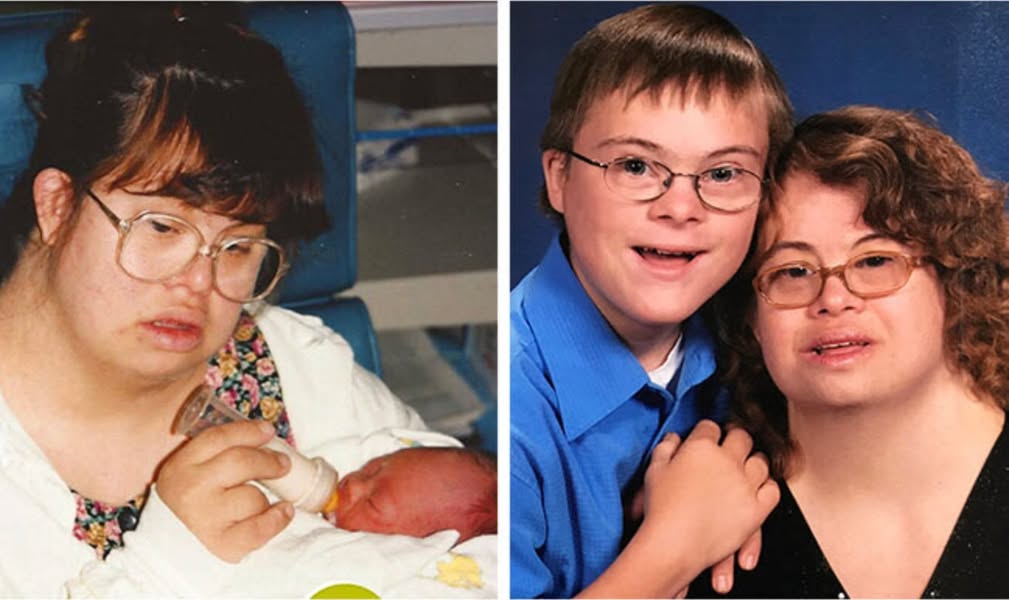
Most people have encountered intrusive questions about whether they plan to have children. Today, an unspoken expectation seems to govern life’s path: build a career, find a partner, get married, and then have children. When someone chooses to stray from that route—especially by deciding not to have children—they often face judgment, unsolicited advice, or deeply personal questions that no one should be asking.
Ironically, when a couple viewed as “different” chooses to have children, the criticism doesn’t disappear—it just takes on a new form. Suddenly, the very people who judge those without children begin to question whether others should become parents at all.
More than twenty years ago, Patti White from California experienced this double standard firsthand. Her daughter Lisa, who has Down syndrome, shared news that was both surprising and joyful—she was pregnant.
Lisa’s diagnosis of Down syndrome, a genetic condition that leads to varying cognitive and physical challenges, never stopped her from living a full, independent life. She had her own apartment, worked full-time at a local Goodwill store, and had been independent since she was 18. Her coworkers loved her, and while she didn’t operate the cash register, she excelled at almost every other task.
Lisa was in a relationship with a man who also had Down syndrome. Though they lived separately, they shared a deep and healthy bond. Patti, understanding her daughter’s maturity, had discussed adult relationships with her, including safe sex and contraception. At the time, nearly all medical sources claimed that men with Down syndrome were sterile, and experts assured Patti she had no reason to worry.
But life unfolded differently.
One afternoon, Patti returned to work and checked her voicemail. Pressing play, she heard her daughter’s voice full of excitement.
“Hi Mom! I just wanted to tell you… you’re going to be a GRANDMOTHER!”
Patti froze. A flood of thoughts overwhelmed her. “How is this possible?” she wondered. “Her boyfriend has Down syndrome!”
Yet, the shock quickly transformed into support. Patti stood firmly beside her daughter’s decision to have the baby. Despite social stigma and medical doubts, she saw Lisa not as a diagnosis, but as a capable, loving woman determined to succeed.
Lisa became a mother at 29. Her journey challenged many ideas about what is considered “normal” or “appropriate.” She proved that love, support, and determination can shatter even the strongest assumptions.
This story is more than a surprising pregnancy. It challenges society’s limits on who is deemed fit for parenthood. It is about trusting those we often underestimate. Above all, it is about a mother who stood by her daughter, even when the world said she shouldn’t.

